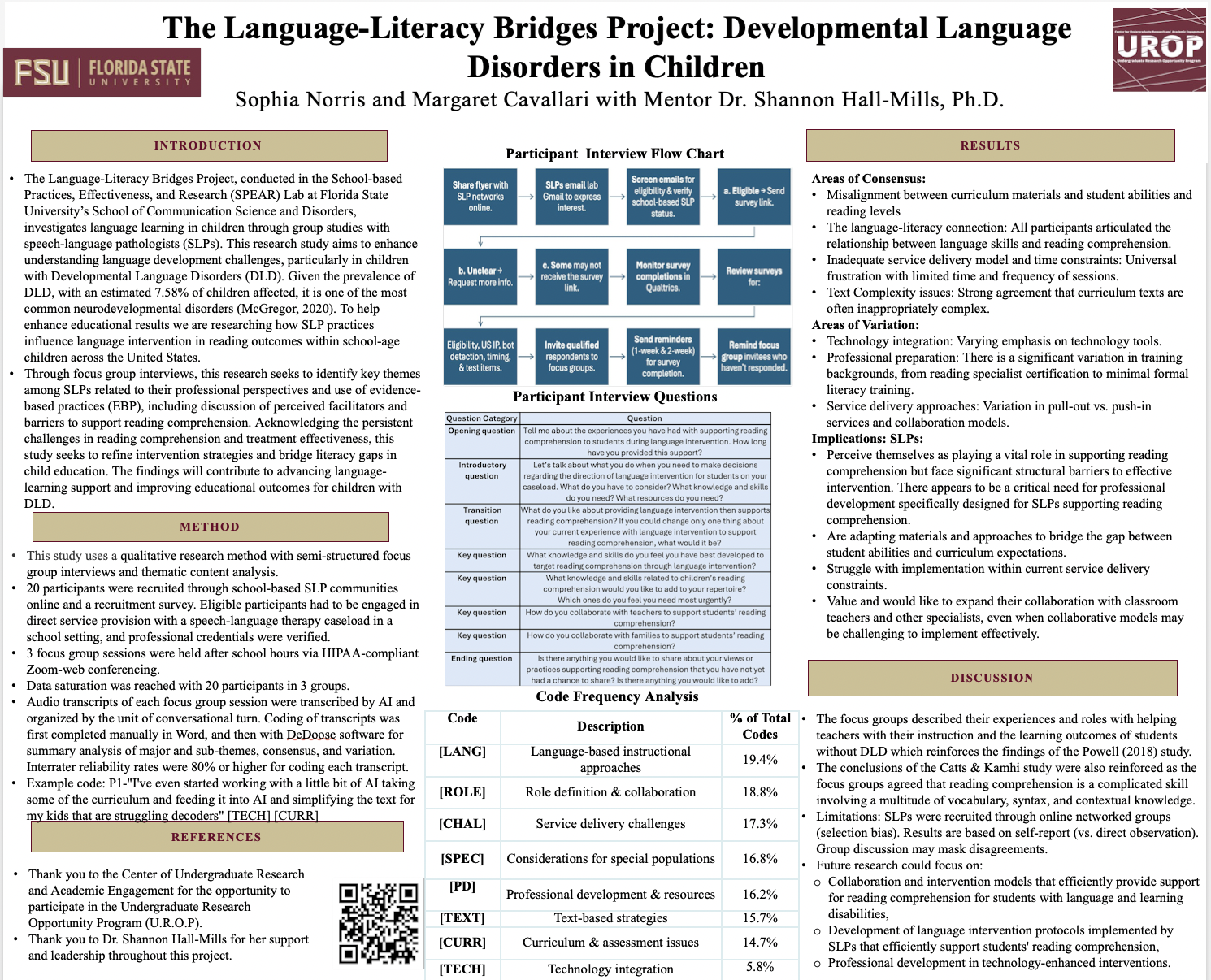Research Symposium
25th annual Undergraduate Research Symposium, April 1, 2025
Margaret Cavallari Poster Session 2: 10:45 am - 11:45 am/ Poster #273

BIO
My name is Margaret Cavallari and I am a first year at FSU majoring in behavioral neuroscience. I have always been interested in research and I am very excited to get the chance to present what I have learned at the Undergraduate Research Symposium. The next step in my research career will be to gain more lab experience either through volunteer work or directed individual studies.
The Language-Literacy Bridges Project: Developmental Language Disorders in Children
Authors: Margaret Cavallari, Dr. Shannon Hall-MillsStudent Major: Pre-Behavioral Psychology
Mentor: Dr. Shannon Hall-Mills
Mentor's Department: School of Communication Science and Disorders Mentor's College: Florida State University Co-Presenters: Sophia Norris
Abstract
Practices, Effectiveness, and Research (SPEAR) Lab at Florida State University’s School of Communication Science and Disorders, investigates language learning in children through group studies with speech-language pathologists (SLPs). This research study aims to enhance understanding language development challenges, particularly in children with Developmental Language Disorders (DLD). Given the prevalence of DLD, with an estimated 7.58% of children affected, it is one of the most common neurodevelopmental disorders (McGregor, 2020). To help enhance educational results we are researching how SLP practices influence language intervention in reading outcomes within school-age children across the United States. Through focus group interviews, this research seeks to identify key themes among SLPs related to their professional perspectives and use of evidence-based practices (EBP), including discussion of perceived facilitators and barriers to support reading comprehension. Acknowledging the persistent challenges in reading comprehension and treatment effectiveness, this study seeks to refine intervention strategies and bridge literacy gaps in child education. The findings will contribute to advancing language-learning support and improving educational outcomes for children with DLD.
Keywords: bridges language disorder

